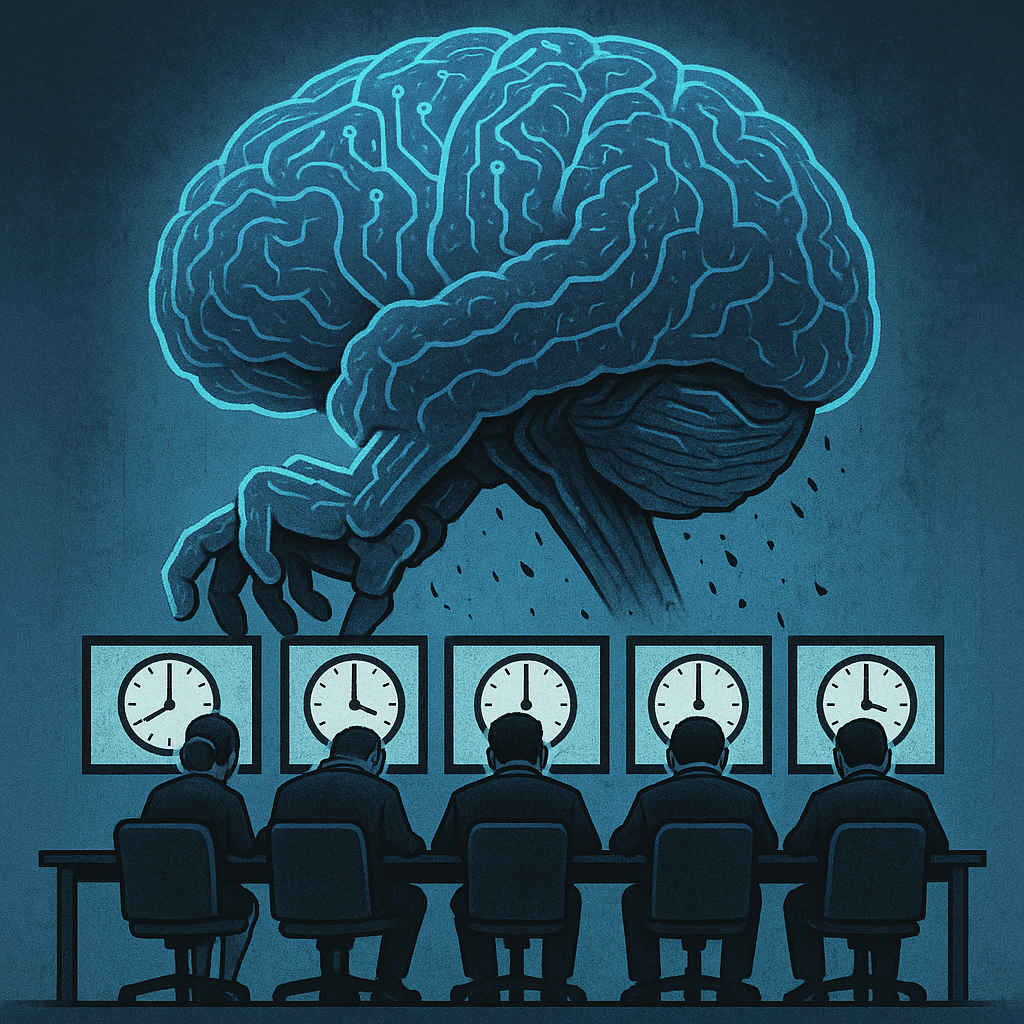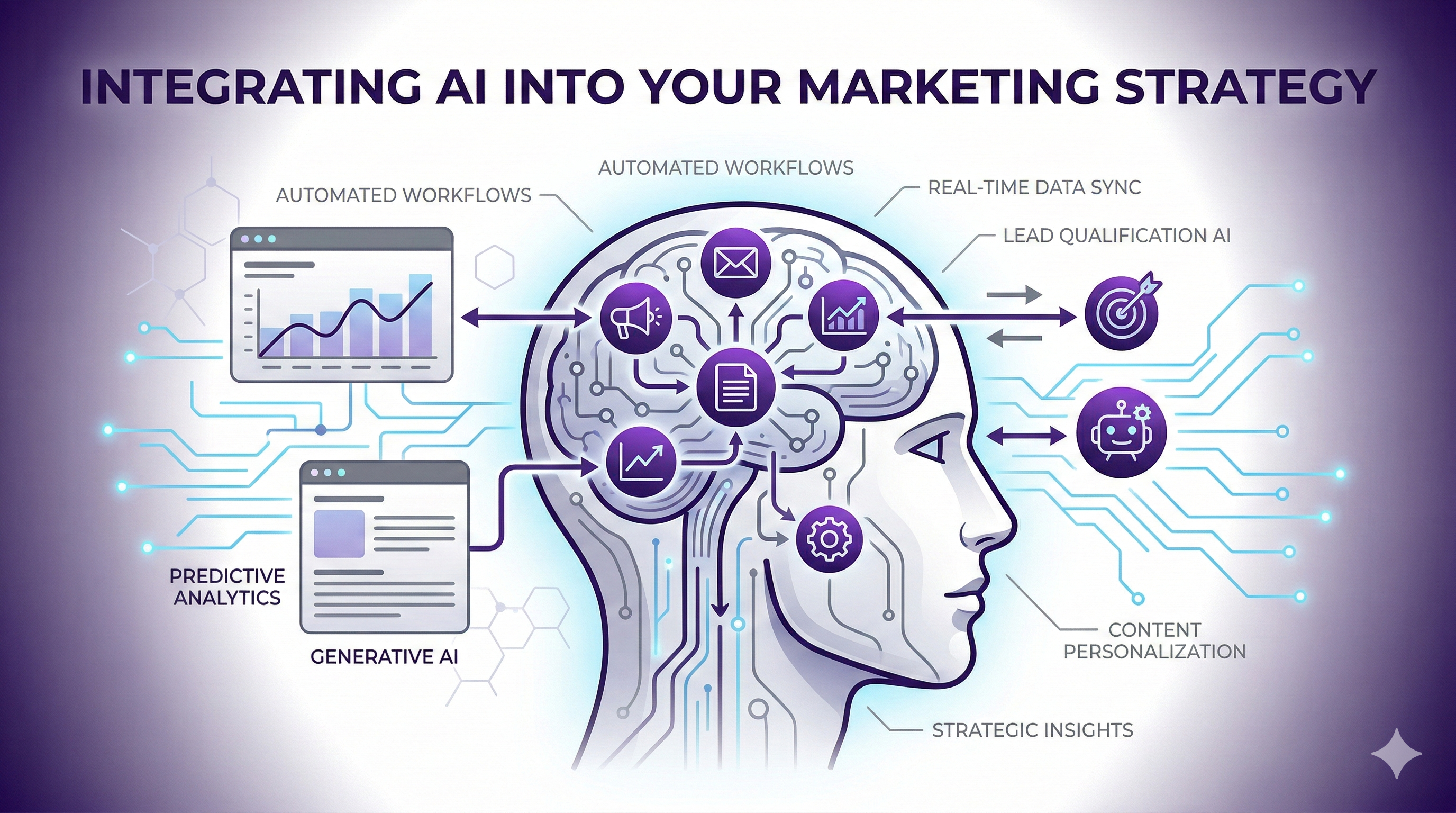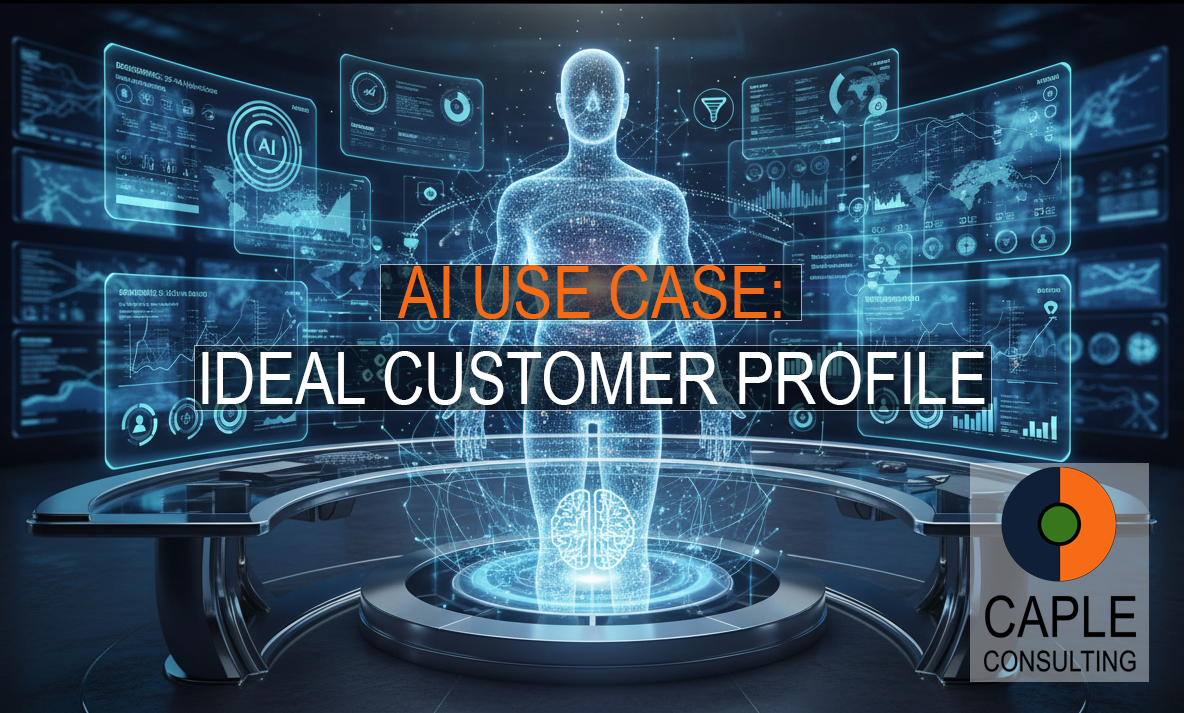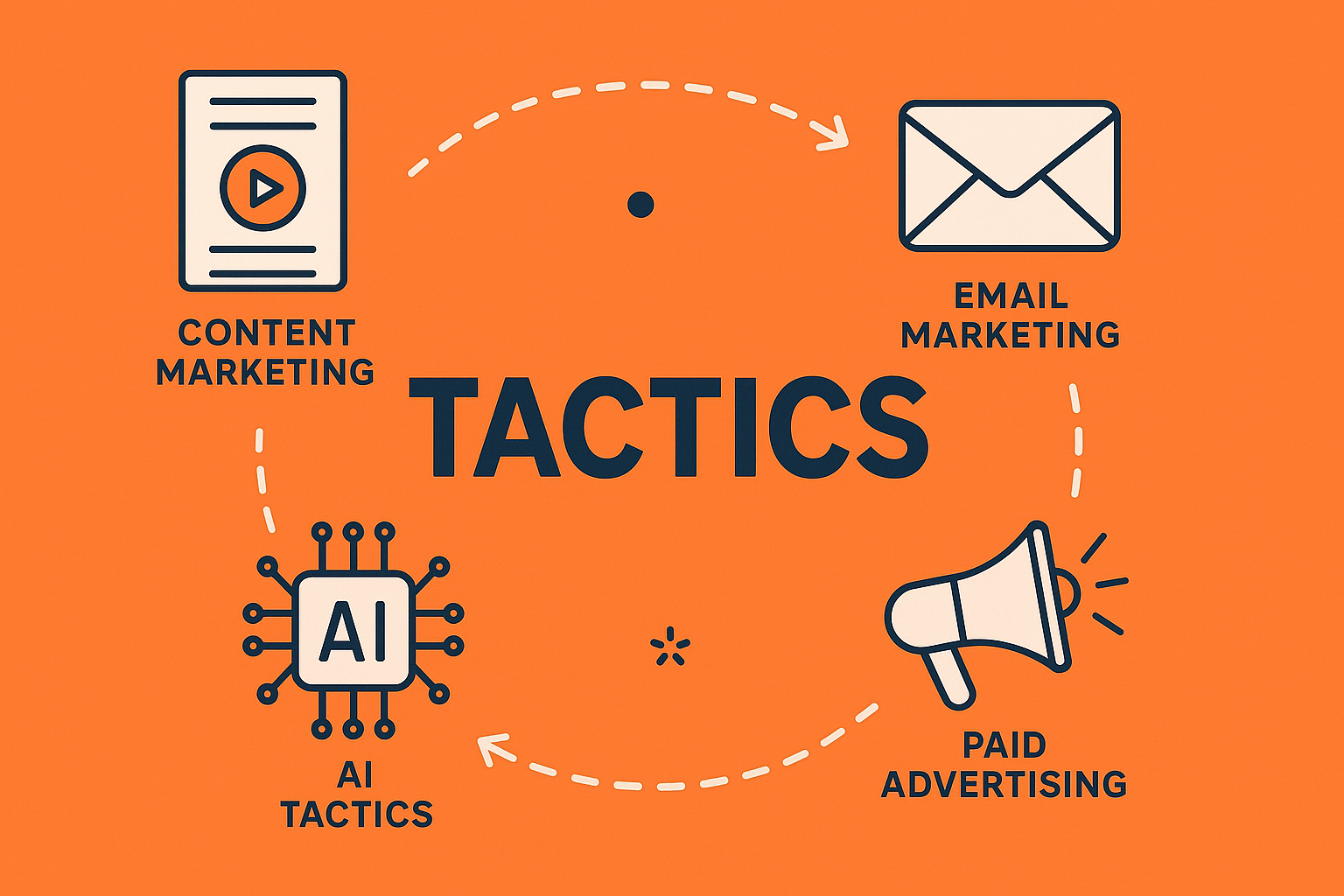We can’t stop talking about AI, most of us are torn between how amazing or scary it is, but some of...
Is AI Making Marketing Agencies Obsolete?

Unless you have been living in a cave for the last few years, you’ll have noticed that the digital world has changed and continues to change at pace, driven by the rapid proliferation of Artificial Intelligence.
In marketing circles the conversation has been dominated by AI and how that is shaking things up. With agency leaders pivoting all over the place, this article attempts to find some clarity amid the noise, panic and excitement.
What's going on?
Traditional marketing agency value propositions that are built on human capital for execution, content creation, and analysis are being systematically commoditised by sophisticated AI.
Today, 73% of marketers are already using AI tools in their work, with generative AI adoption in marketing and sales set to add up to $4.4 trillion annually to the global economy (McKinsey, 2023; HubSpot, 2024).
This article argues that the agency model is not obsolete, but its value has fundamentally pivoted. Businesses that fail to adapt, risk significant competitive disadvantage, as AI-powered competitors achieve unprecedented levels of efficiency, personalisation, and scale.
A 2024 report by Boston Consulting Group found that marketers using generative AI extensively are seeing 5-15 times ROI. The risk of inaction is no longer a future threat; it is a present reality.
The “Next Gen” agency is evolving from a provider of billable hours to a strategic orchestrator of intelligence. Its new value lies in providing the high-level intellectual property (IP), governance, and specialised technical integration that clients cannot cost-effectively build in-house. This includes proprietary AI-assisted processes, ethical AI governance, competitive foresight using predictive models, and the critical human element of strategic validation. This article outlines the dilution of the traditional model and defines the new, indispensable value stack of the modern AI-led marketing partner.
The Old Paradigm / Pre-AI Agency Value Proposition
For decades, the value of a marketing agency was clear and tangible. It was built on a foundation of human expertise, process, and scalable resources that were difficult for clients to replicate internally. The core pillars of this traditional model stood as Flexible human resource, delegated accountability and efficient delivery.
- Flexible Human Resource
Agencies provided a non-employee, multi-skilled team for a single cost, offering expertise across SEO, media buying, content, and creative without the overhead of full-time hires.
- Delegated Accountability
They served as a source of proven processes, expertise, and guidance, allowing clients to delegate responsibilities for campaign implementation and cross-channel integration.
- Efficient Delivery
The model was designed for efficient, rapid delivery and the ability to scale marketing output in line with client investment and ambition.
This model, often centred on a hub-and-spoke "pod" structure, offered clients a strategic extension of their team, translating business objectives into on-the-ground execution. The agency's role was to mitigate risk, protect marketing spend, and deliver a predictable return through rigorous manual effort, proven processes and established best practices.
How Has AI Diluted Traditional Agency Value?
The emergence of agentic and generative AI has fundamentally disrupted this legacy model. Core competencies that once justified significant agency fees are now being automated and commoditised, accessible directly to in-house teams. The rate of this change is staggering; nearly 64% of marketers believe AI is a "necessity" for creating effective marketing strategies in the modern era (HubSpot, 2024).
How has traditional marketing agency value been diluted by AI?
|
Traditional Value Point |
AI Dilution Mechanism |
|
Flexible Non-Employee Resource |
Agentic AI creates "AI Employees"—digital workers capable of autonomous task execution (e.g., content drafting, report generation) without human HR costs. |
|
Multi-Skilled Teams |
Large Language Models (LLMs) provide vast, continually learning knowledge bases, instantly generating copy, code snippets, and design concepts that once required a team of specialists. |
|
Source of Expertise & Guidance |
Retrieval-Augmented Generation (RAG) can synthesise a company's proprietary data, providing bespoke insights that often surpass generalist agency advice. |
|
Integrated Marketing Implementation |
Agentic AI connects directly to APIs (Google Ads, CRM, CMS) to perform cross-channel tasks, scheduling, and A/B testing with greater speed and continuity than human teams. |
|
Analysis and Critical Thinking |
AI analytics tools process vast datasets in real-time, suggesting data-driven actions and budget reallocations, outpacing human reporting cycles. |
|
Efficient & Rapid Delivery |
Generative AI has dramatically reduced development time for creative assets. Marketers report saving an average of three hours per day using automation and AI (Salesforce, 2023). |
|
Ability to Scale Output |
Scaling marketing output with AI is nearly instantaneous and does not incur the high associated costs of commissioning more billable agency hours. |
This shift empowers businesses to plan, create, and analyse entire marketing strategies in-house, reducing the core marketing function to an AI-assisted creative and decision-making capacity. The case for traditional agency support has been irrevocably weakened.
What is the Competitive Cost of AI Inaction?
Continuing the traditional, execution-focused agency model is no longer a safe strategy, in fact, it is a direct path to competitive irrelevance. The risk is not just about missing out on efficiency gains, it is about being fundamentally outmanoeuvred in the market.
What are the key risks of failing to adopt an AI-centric marketing strategy?
- Erosion of Market Share. Competitors leveraging AI for personalisation at scale can create superior customer experiences, leading to higher conversion rates and customer loyalty. High-performing marketing teams are already 2.1 times more likely than underperformers to be using AI in their operations (Salesforce, "State of Marketing", 2023).
- Diminishing ROI. As AI-powered media buying optimises ad spend in real-time, businesses relying on manual campaign management will inevitably see their ROI diminish. They will be paying more to achieve less, directly impacting profitability.
- Loss of Strategic Foresight. AI-driven predictive analytics allows businesses to anticipate market shifts and consumer trends. Without this capability, companies are left in a reactive state, perpetually one step behind more agile, data-informed competitors. A recent study highlighted that 79% of marketing executives believe AI will be critical to their ability to compete in the next two years (KPMG, 2023).
- Operational Inefficiency. The productivity gains from AI are immense. Teams using AI for content creation, for example, report being 30-40% more efficient (Gartner, 2023). Resisting this shift means accepting a higher operational cost base and a slower speed to market for all campaigns and initiatives.
The evidence has been building over the last couple of years. Not engaging with an AI-led marketing partner or building an internal AI capability is a decision to accept a lower growth trajectory and a weaker competitive position.
The New Marketing Agency as the AI Orchestrator
As the value of manual execution diminishes, a new, more strategic form of value emerges. The Next Gen Agency thrives not by doing the work, but by directing the intelligence. It shifts from being an outsourced execution shop to a centre of excellence for AI orchestration, governance, and proprietary strategy.
What are the new value pillars of the modern marketing agency?
Essential Future Agency Value-Add
|
New Value Pillar |
Description of Value-Add |
|
AI Engineering, Governance & Audit |
We provide the specialist skills to audit, govern, and optimise a client's internal AI tools, ensuring they run efficiently, securely, and ethically. This includes integrating custom LLMs with proprietary client data to create a defensible competitive advantage. |
|
Strategic Systems Integration & Training |
We orchestrate the entire marketing tech stack, acting as expert consultants to integrate complex systems (CRM, ERP) with new AI layers. This includes training leadership and marketing teams on the strategic application of these systems to ensure adoption and drive measurable business impact. |
|
Competitive Foresight & Scenario Planning |
We sell anticipation. Using AI-powered models, we run competitive simulations and predictive scenarios, guiding C-suite decisions on market entry, investment allocation, and disruption threats before they materialise. |
|
Proprietary AI-Assisted Processes |
We develop and deploy proprietary, proven AI-assisted marketing frameworks built on years of cross-industry experience. This provides repeatable, high-quality methodologies that clients cannot replicate with off-the-shelf tools alone. |
|
Brand Voice Guardrails & Governance |
We define and enforce a sophisticated Brand Voice and Risk Taxonomy for the client's internal AI agents. This is critical to prevent AI from generating off-brand, non-compliant, or contradictory content, protecting brand equity at scale. |
|
Third-Party Human Validation & Critique |
We provide the objective, non-biased human qualitative oversight—the "Human Veto." This involves usability testing and customer research to validate that AI-generated strategies and experiences connect on an emotional level with target audiences. |
|
Data Architecture & Monetisation |
We help clients architect their first-party data, the foundational fuel for AI, and translate this technical asset into a tangible cost-saving and revenue-generating strategy. |
In this new reality, the agency's intellectual property becomes its core product. The value is in the strategic oversight, the proprietary models, the ethical frameworks, and the human validation that ensures AI is not just active, but effective.
A Strategic Imperative
The evolution of the marketing agency is not a theoretical exercise; it is a strategic imperative for survival and growth in the AI age. The commoditisation of traditional marketing tasks has cleared the way for a more elevated, strategic partnership between client and agency.
Businesses must now seek partners who are not merely users of AI, but masters of its strategic application. The focus must shift from outsourcing tasks to insourcing intelligence, guided by an agency partner who can orchestrate technology, govern its use, and provide the human wisdom needed to translate its output into sustainable, defensible growth.
The Next Gen agency is no longer just an extension of the marketing team; it is the strategic partner helping to navigate the complexities of the AI-powered marketplace.
References
- Boston Consulting Group (BCG). (2024). "How Generative AI Can Supercharge Marketing and Sales."
- Gartner, Inc. (2023). "Marketing Technology and Emerging Trends Report."
- HubSpot. (2024). "The State of AI in Marketing Report 2024."
- KPMG. (2023). "Global CEO Outlook Survey."
- McKinsey & Company. (2023). "The economic potential of generative AI: The next productivity frontier."
- Salesforce. (2023). "State of Marketing Report, 8th Edition."
This article was created with the help of Gemini 2.5 Pro from a human concept and has been edited by a human who takes full responsibility for any dodgy grammar or spelling.
Get in touch today!
If you have a question or want to find out more about how we can help, then I would love to hear from you.
Stephen Caple
Director
Caple Consulting Limited




